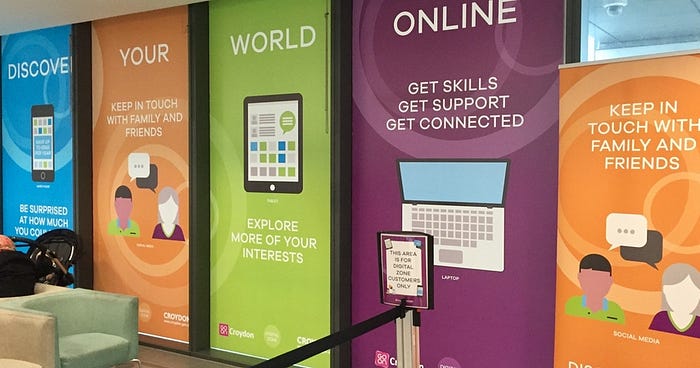Government recognises importance of digital skills

by Rachel Neaman
Originally published 06 October 2016
Earlier this week, government announced it would be offering basic digital skills training “free of charge to adults in England who need it”. I’m delighted to see this, not least because Doteveryone — and Go ON UK before it — have been campaigning for years for universal basic digital skills and for them to be recognised as a core skill alongside literacy and numeracy.
Currently, 12.6 million adults — that’s 23% of the adult population — lack basic digital skills. Whilst many assume this only affects older people, the reality is that half this number are under 65 and could be contributing economically to the UK as part of the workforce. This is clearly an issue when 90% of all new jobs are estimated to require digital skills, and nearly three-quarters of employers say they would be unlikely even to interview a candidate without basic digital skills. In terms of earning power, people who are digitally literate have substantially higher wages than those who don’t.
Last year, Go ON UK and Tinder Foundation commissioned a report from the Centre for Economic and Business Research (Cebr) that showed that providing every adult in the UK with basic digital skills and a simple device to use them would cost £1.65 billion. However the Net Present Value over 10 years would be £14.3bn, with a direct benefit to government of £1.8bn a year. This represents a return of almost £10 for every £1 spent. Upskilling the population is therefore an investment in the UK’s future economic prosperity as well as being of benefit to the individual.
There is no shortcut to getting people online. And there is no ‘one-size-fits-all’ way of doing it either. It requires a range of approaches tailored to the individual learner and their circumstances. Our digital skills programmes in the London Boroughs of Croydon and Lewisham have shown that face-to-face, one-on-one support is by far the most effective method. Online courses have their place but for those taking their first steps online, classroom-based, formal learning approaches are not as effective as hyper-local, individual, personalised approaches.
These take time and resource to deliver. To engage the 12.6 million people the government is targeting requires a detailed understanding of their specific needs and circumstances. I strongly recommend that government supports a range of tried-and-tested approaches that can be ‘picked and mixed’ to suit the individual learner, rather than implementing a traditional course or training programme. The Doteveryone Digital Exclusion Heatmap shows some of the different factors that affect why people are and aren’t online, illustrating why a one-size-fits-all, prescriptive approach to digital skills is less likely to be effective.
This new policy is to be thoroughly welcomed. The proof of the pudding will be in its implementation.